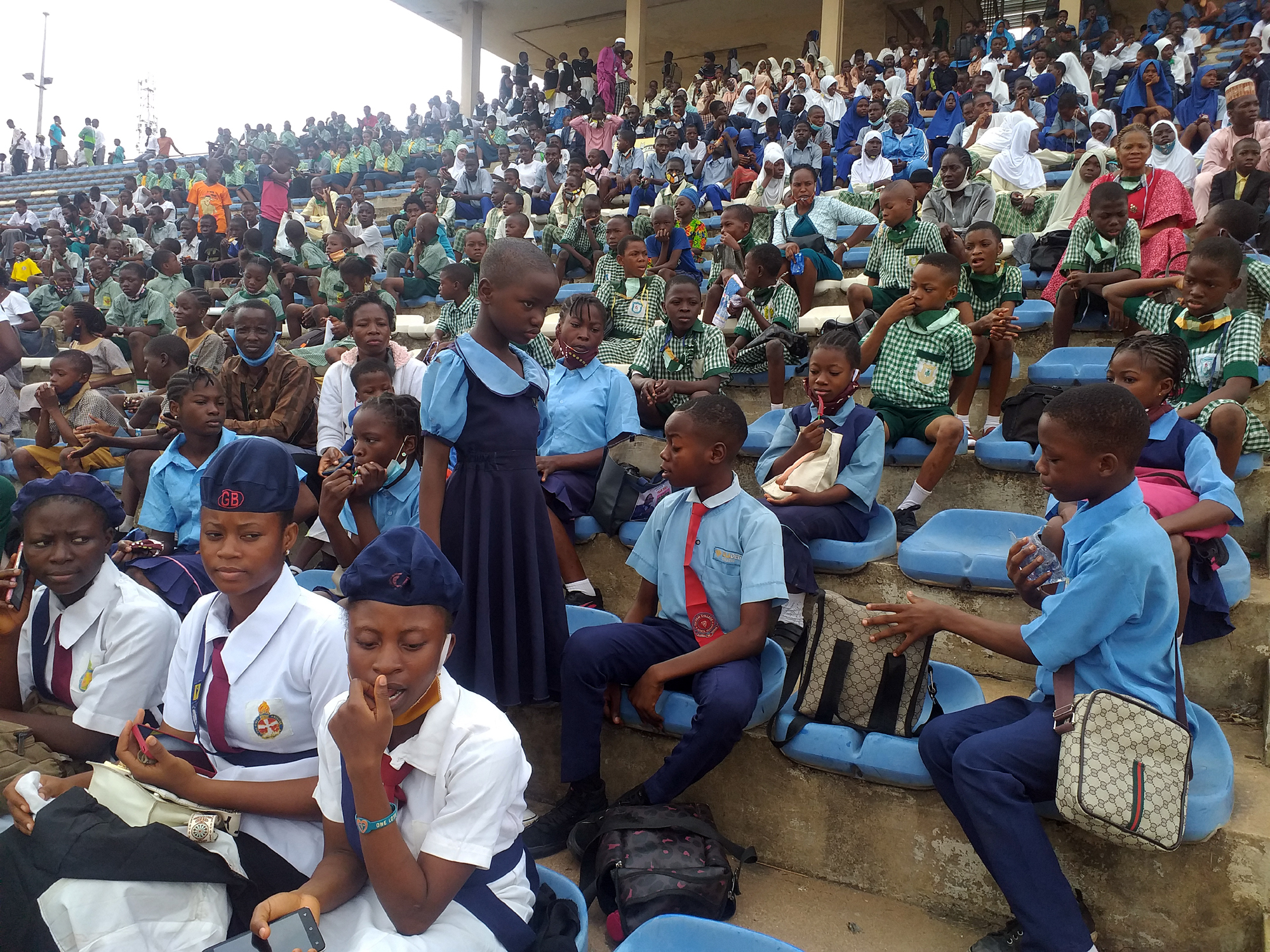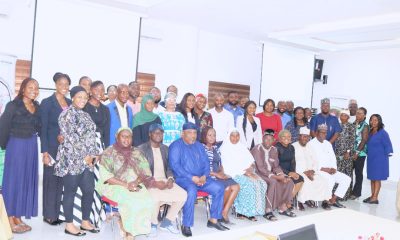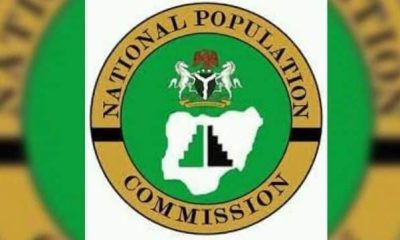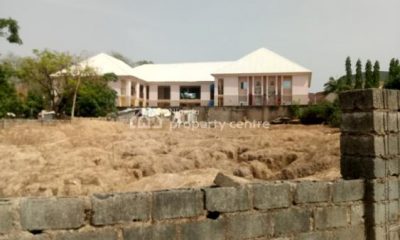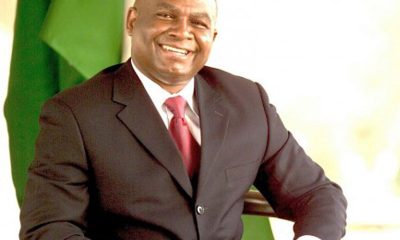Education
Scholarship: 69 UNN indigent students get N3.5m
A philanthropist, Chief Jude Ozah, the Isagba of Ogbashi-Uku kingdom in Delta, has gifted some N3.5 million to 69 indigent Delta students in University of Nigeria, Nsukka (UNN).
The donor christened the gift scholarship of N50,000 to each of the students to assist them in their academic pursuits from a N10 million endowment he instituted in 2021.
Prof.
Charles Igwe, the Vice-chancellor of UNN, in a remark in Nsukka while presenting the scholarship certificate and cash to the beneficiaries thanked the donor for investing in education.Igwe, represented by Prof. Uju Muo, the Director of Academic Planning in UNN, urged the beneficiaries to make judicious use of the money in order to encourage the donor to invest more in education and humanity.
“I commend the donor for assisting these indigent under-graduates from his state to enable them to graduate on their course of study.
“The beneficiaries should use the money for the purpose it is meant for as well as strive to make first-class on graduation to encourage the philanthropist to invest more in education,” he said.
The VC commended Prof. Aloysius Okolie, the Dean, Faculty of Social Science, who attracted the scholarship award last year when the donor came to the university.
Speaking, Okolie explained that the donor had in April 2021 while chairing a public lecture of the Faculty of Social Science instituted a N10m scholarship award for indigent Delta State students.
“This N10m revolving scholarship scheme to be known as Chief Dr Jude & Yolanda Ndudi Ozah Scholarship Scheme is to assist indigent students in UNN from Delta State.
“The faculty is grateful to the donor for his generosity, philanthropy, and favorable disposition toward UNN and Delta students in particular.
“We thank him for this rare sacrifice and huge investment on the poor.
“Today, 69 students shortlisted by the Scholarship Faculty Committee and approved by the donor will receive N50,000 cash to assist them in their education,” he said.
According to Okolie, more students from Delta will benefit from the scholarship fund adding that by April the committee will select new beneficiaries who will receive money for scholarships, school sundry fees, and their upkeep.
“Delta State under-graduates in UNN will continue to benefit from this scholarship fund until the last kobo is disbursed,” he said.
The Dean commended Mr Anthony Okolie, the chairman of the five-man scholarship committee for demonstrating transparency, honesty, and integrity in administering the process.
The don urged beneficiaries to ensure they made judicious use of the money given to them so as to justify the purpose it was donated by the philanthropist who is a lover of education.
Earlier, Okolie thanked the donor, school administration, Dean, and Associate Dean of the faculty for creating the enabling environment for the committee to do its work.
“I am glad that the committee demonstrated a high level of all-inclusiveness in the selection process, subject to the final approval by the donor.
“I urge beneficiaries to always be of good behaviour throughout their stay in the institution and to reciprocate this kind gesture by putting in their best so as to graduate in flying colours,” he said.
Speaking on behalf of other beneficiaries, Courage Onovieraye from Ughelli South LGA, a 300 level Accountancy student, thanked the donor and promised that they would study hard to make good results on graduation.
“Our prayer for the donor is that God will replenish his pocket in billion folds for putting smiles on the faces of the poor,” she said (NAN)
Education
How female Medicine Degree Holder Abandoned Certificate for Carpentry- Bugaje

The Executive Secretary, National Board for Technical Education (NBTE), Prof. Idris Bugaje has expressed the need to promote inclusivity, especially for women and persons with disabilities in technical education.
Bugaje stated this in Abuja while assessing the impact of President Bola Tinubu’s administration after two years in office.
He appealed for greater gender inclusivity in vocational and technical education, stressing that deliberate policies such as scholarships and incentives could help bridge the gender gap.
In support of his position, Bugaje shared an inspiring story of a female medical doctor who abandoned her medical career to pursue carpentry.
“There is a story I want to share with you, about a girl who was interested in becoming a carpenter.
“The father was a carpenter and they were four children in the family, three boys and herself.
“Whenever she joined the boys to the workshop, the father would send her away, saying, `you are a girl, go back to the house, you are not supposed to be a carpenter’’.
“Without giving considerations to the passion of the young girl, the father sent her to a medical school.
“She graduated with the MBBS, went and did the one-year internship after graduation, and chose a role as a medical doctor.
“After that, she came back to the father, returned the MBBS certificate to him, and thanked him.
“Afterward, she told the father that her passion is in carpentry, not to practice as medical doctor,” Bugaje narrated
He added that after spending seven years on medical training, the father had no option but to send her to Turkey to learn how to make furniture.
Addressing cultural and societal barriers often faced by young women in technical fields, Bugaje appealed to parents to support their daughters’ interests in trades like plumbing, electrical installation, and carpentry.
He also called on policymakers to prioritise passion and skill development among youth, especially girls, noting that such encouragement could lead to greater innovation and self-reliance.
“If they want to become carpenters, ICT experts, or POP artists, allow them.
“In skills’ training, passion is very important. That’s what motivates children and helps them innovate.
“We need to harness these innovations if the country is to move forward and rise beyond being a third-world nation,” he said.
He emphasized the need to have deliberate policies to encourage women to come into TVET through scholarships and other incentives. (NAN)
Education
WAEC Apologies for Conducting English Exam Late, Cites Leakage Prevention

The West African Examinations Council (WAEC) has apologized for delay in conducting English Language Paper 2 in the ongoing 2025 West African Senior School Certificate Examination (WASSCE).
The took place on Wednesday evening.
In a statement by Moyosola Adesina, Acting Head of Public Affairs Department of
WAEC, the council said that it encountered challenges.
”While maintaining the integrity and security of our examination, we faced considerable challenges primarily due to our major aim of preventing leakage of any paper.
“We recognise the importance of timely conduct of examinations and the impact of this decision on candidates, their schools and parents, and we sincerely apologise for any inconveniences caused,” WAEC stated.
It said that it successfully achieved its objective but it inadvertently impacted the timeliness and seamless conduct of the examination.
“In spite of our best efforts, we encountered logistical hurdles, security concerns and socio-cultural factors that negatively influenced our operations,” WAEC said.
The council re-affirmed its commitment to upholding the highest standard in examination conduct, and pledged to continue to promote academic excellence. (NAN)
Education
FG vows full WAEC CBT shift by 2026 – Minister

The Minister of Education, Dr Tunji Alausa, has reaffirmed the Federal Government’s commitment to fully transitioning to Computer-Based Test (CBT) examinations for the West African Examinations Council (WAEC) and other exam bodies by 2026.
Dr Alausa made this known while monitoring the conduct of WAEC’s CBT examinations in Abuja on Wednesday.
He expressed optimism about Nigeria’s capacity to modernise its examination system and reduce widespread malpractice through digital innovation.
Commending WAEC’s initiative, the minister described the shift from traditional pen-and-paper exams to CBT as a historic and crucial step toward fairness and educational integrity.
“We are working very hard to eliminate fraud in our exam system, and WAEC is taking the lead,” he said.
Highlighting the advantages of CBT, Alausa noted that the system simplified the exam process while significantly curbing cheating.
“We now have clear evidence that when exams are done using technology, the level of fraud is minimised to almost zero,” he stated.
He further lauded WAEC’s internal safeguards, explaining that the CBT system was operated via a secured Local Area Network (LAN), making it “literally impossible” to hack.
According to the minister, by Nov. 2025, all WAEC multiple-choice exams will be conducted using CBT.
He added that essay questions and NECO examinations would follow suit by 2026.
On infrastructure and logistics, particularly in remote areas, Alausa acknowledged the challenges but assured that scalable solutions are in progress.
“Are we going to be ready to provide every single needed infrastructure by November? Absolutely not.
“But as we move into the future, we will be ready. We have to challenge ourselves as government,” he said.
He also addressed concerns over the logistics of conducting multiple exams.
“In WAEC, the average student takes about eight to nine papers.
“They do it over several days. Those are the logistics we, as administrators, have to work through, and we already are,” he explained.
The ongoing WAEC exams, which began on April 24, are scheduled to conclude on June 20, 2025.
A total of 1,973,253 candidates from 23,554 schools are participating. Of this number, 979,228 candidates are male, accounting for 49.63 per cent, while 994,025 candidates are female, making up 50.37 per cent.(NAN)







